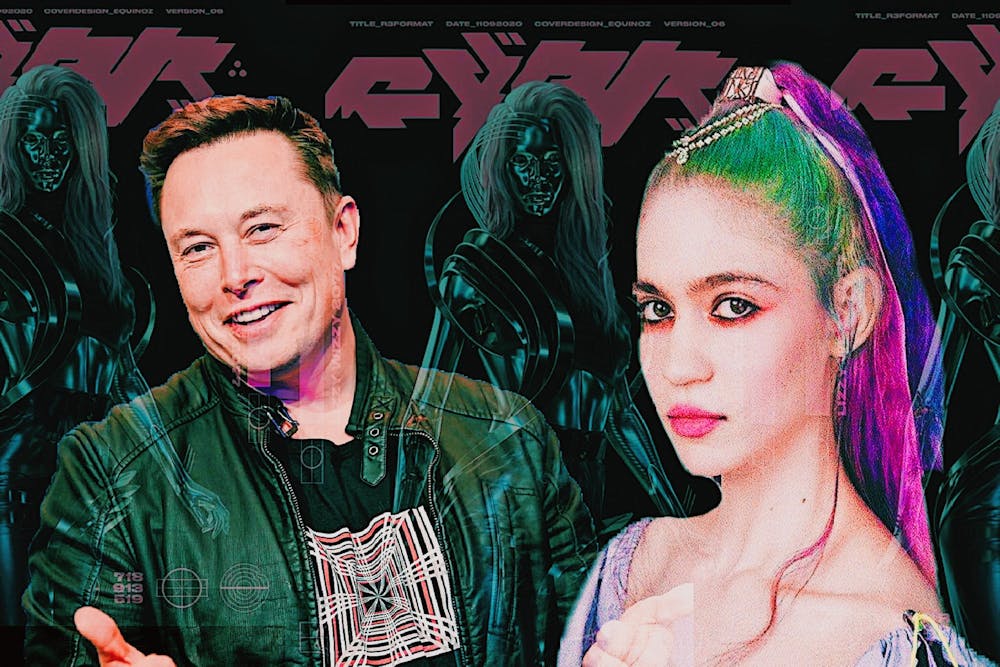By now, you’ve probably seen the images of Grimes reading The Communist Manifesto by Karl Marx and Friedrich Engels after her "semi"–separation with Elon Musk. But Grimes’ weird photo op is more than bizarre; it is symbolic of the world we currently exist in. We are living in a time where the exploitation of labor and resources are pushed to their extremes in a frantic effort to meet the Global North’s boundless consumption. In such a time, there is a dire need for class consciousness and organization to remedy these conditions.
Knowing that we cannot turn to our neoliberal, capitalist state, who can we turn toward? A gut reaction might lead you to those with immense wealth and the most resources: celebrities and billionaires. However, not many celebrities and billionaires want to "share the wealth." There are some, though, who claim to be leftists and should technically agree with this ideology. The best, and perhaps most infamous, example of this cognitive dissonance is the Canadian musician Grimes, aka Claire Boucher.
Grimes has claimed to be a leftist on Twitter for some time, and we are all familiar with her antics on said platform. Some egregious examples include her former Twitter bio that stated “anti–imperialist” (which is extremely ironic considering her now ex–partner Elon Musk literally laughed off a US–led coup in Bolivia.) Another example is her viral TikTok video with a “proposition for the communists,” in which she states "enforced farming is really not a vibe.” Weirder enough, she repeatedly defends Musk and his mega–capitalist and amoral pursuits (like illegally threatening and firing Tesla workers for unionizing), in one tweet, claiming that “humans w differing views on economics often hang out.”
As "activism" becomes popular as an aesthetic or personality trait, celebrities that want to be leftists are more than ever feigning interest in organizing, to appeal to both their fans and a country invested in seeing their faves “do” political action. Grimes should learn that performative activism, and specifically leftism, is not what we need.
It's obvious that the typical celebrity cannot be a real leftist. But what about someone who rejects hoarding resources and the celebrity label? A prime example is the non–celebrity rapper Noname.
Noname, or Fatimah Warner, is a rapper whose music focuses on anti–capitalism, Afropessimist theory, and feminism. Outside of her deeply profound lyrics that resonate with her audience, Noname shares theory and literature to her thousands of Twitter followers ranging from works on Afropessimism and settler colonialism, to anticapitalism. She also engages in abolition work through the Noname Book Club. The book club features an online and in–person community in addition to their Prison Program, which sends monthly book picks to people experiencing incarceration across the country. They choose two books a month that uplift BIPOC voices.
Noname’s organizing is an indication that we can have praxis from celebrity–adjacent people. Other so–called leftists should measure the metric by which others should measure themselves.
What’s special about Noname as a celebrity is her integrity, dedication to her ideals, and solid political stance. She speaks clearly and to the point about what she believes in, and she’s willing to put in the work to help her community. She also uses Twitter to educate and inform, rather than wielding the platform as an aesthetic.
Looking at the big picture of celebrities, billionaires, and influencers in the realm of activism, it’s difficult to find individuals like Noname. It’s also difficult to ignore the obvious racialized aspect of a white person "claiming" leftism versus a Black woman. White people and white celebrities are able to participate in leftism like a hobby simply because they are not as significantlyaffected by capitalism or other systems of oppression. This is not to say that white celebrities are solely responsible for this alignment with power; celebrities who exist in marginalized identities more often choose capital over their communities. There is a litany of examples of celebrities who could not care less about marginalization, specifically, because they are by and large (not always) protected by capital.
That’s why Noname's rejection of the celebrity label in favor of organizing should be our model for the praxis of any organizing work. Celebrities can be leftists, but they need to make the choice to divest from the celebrity label. They need to make the choice to choose people over power. And they definitively can, just as Noname has.

